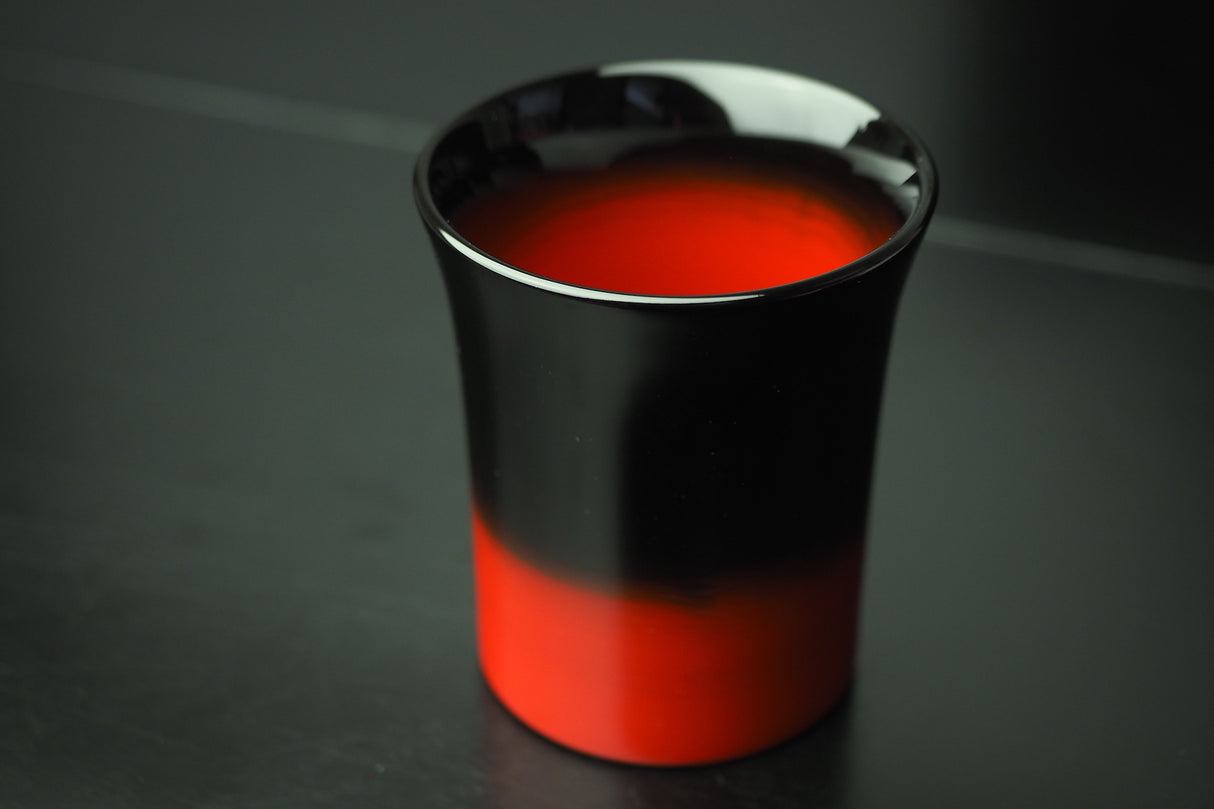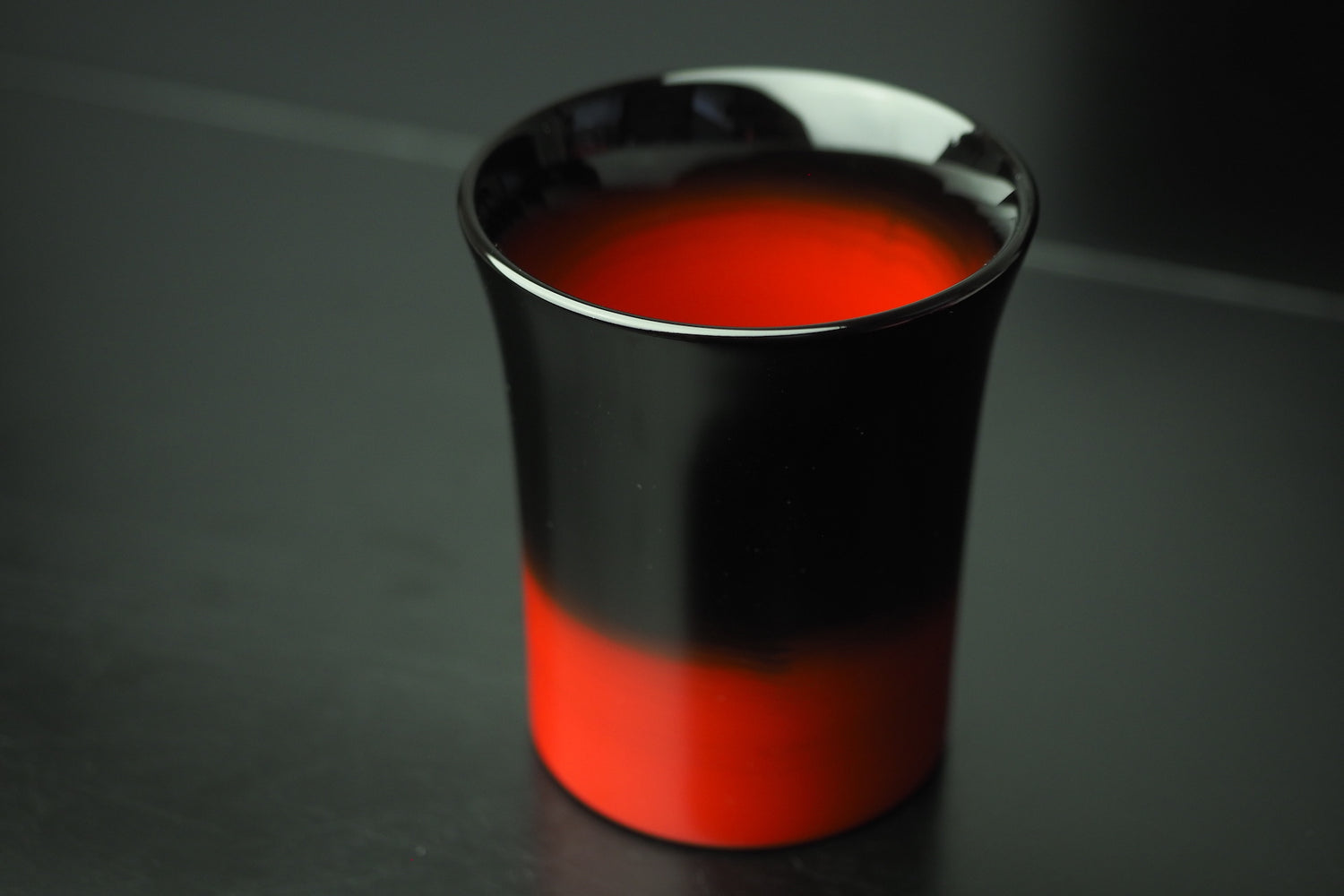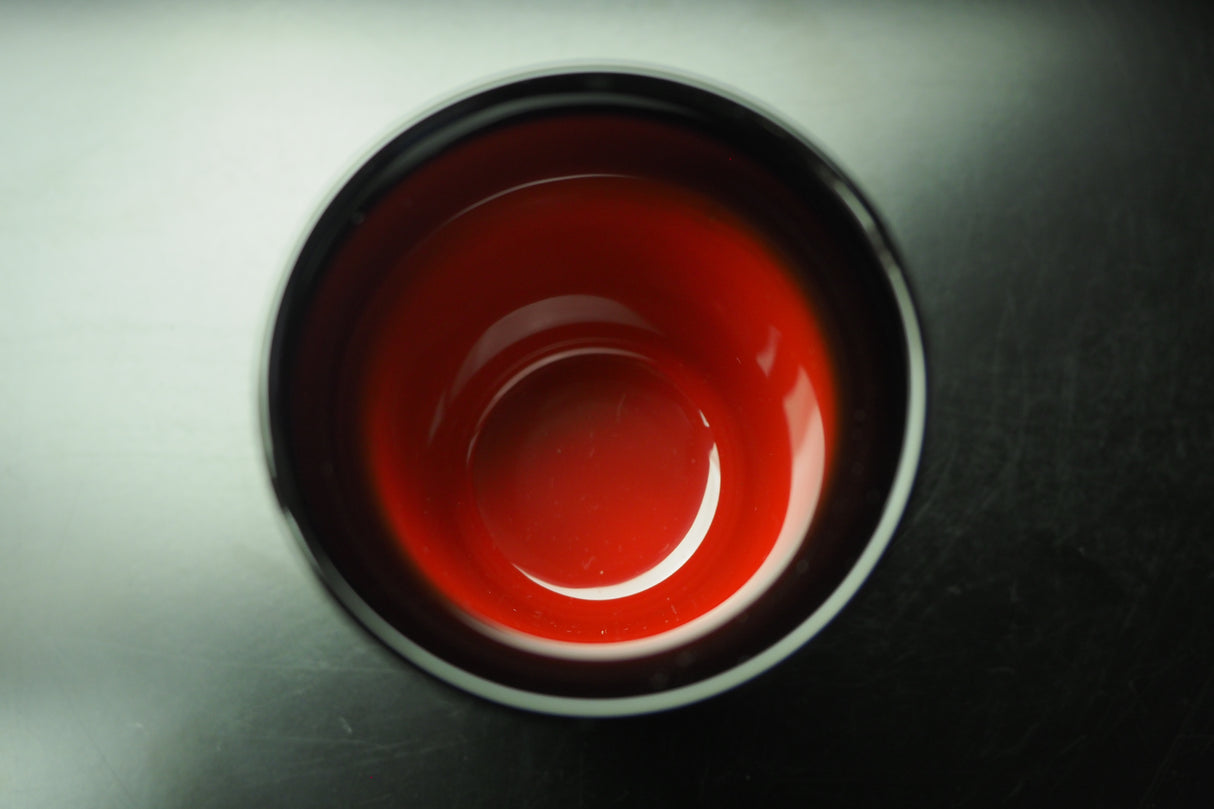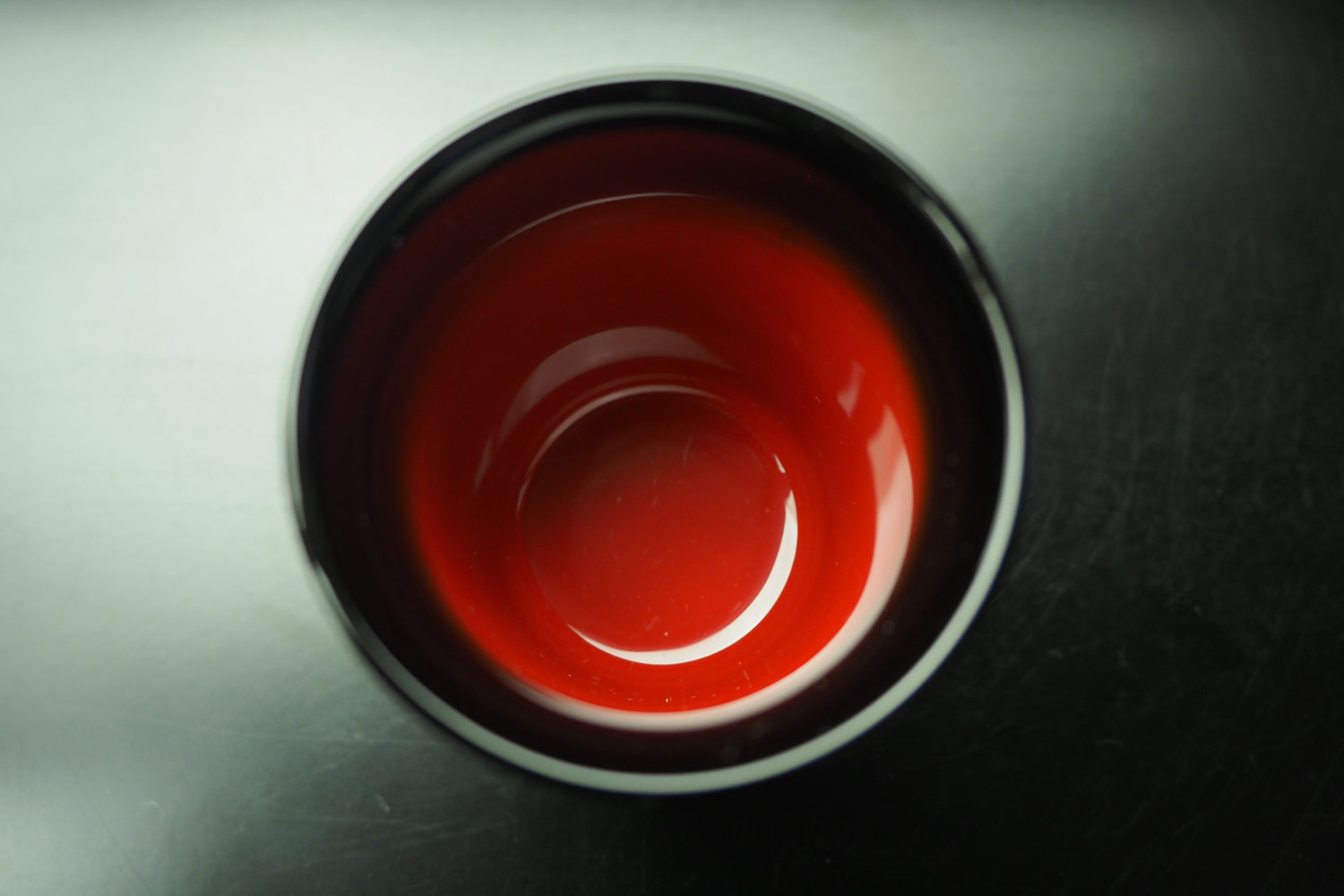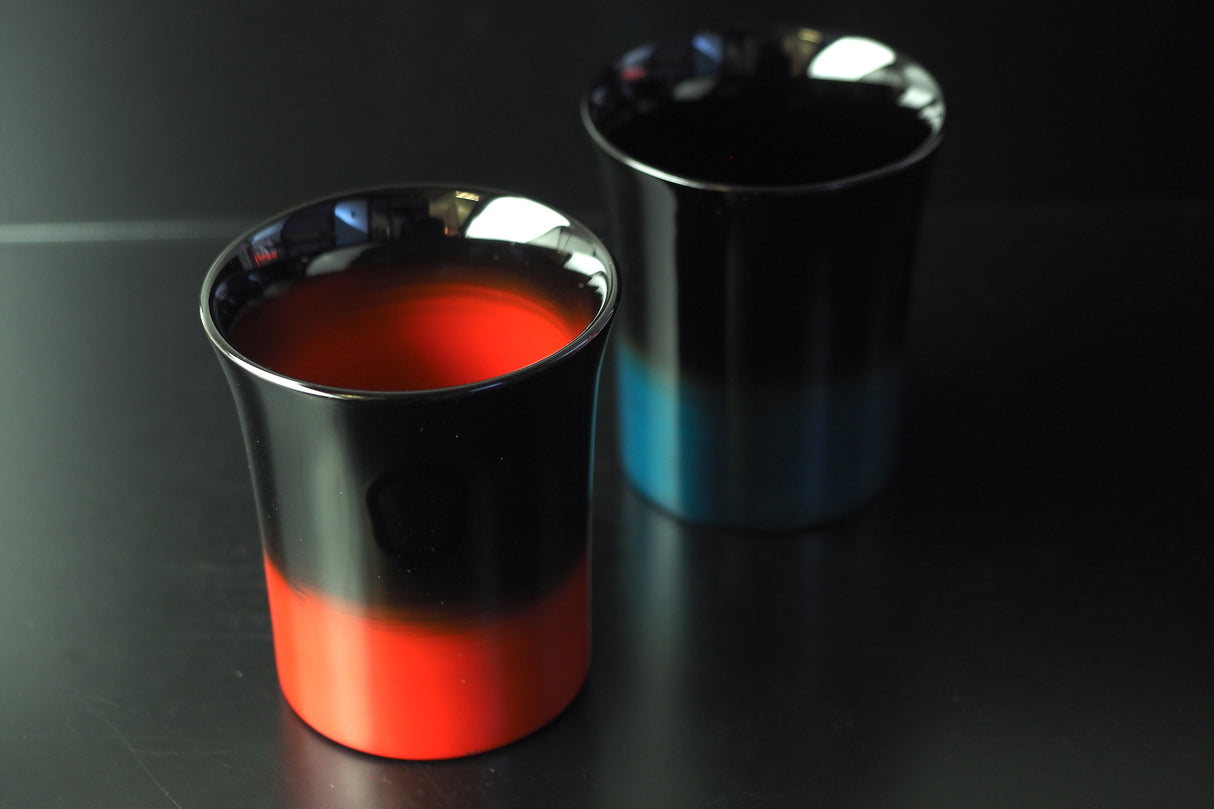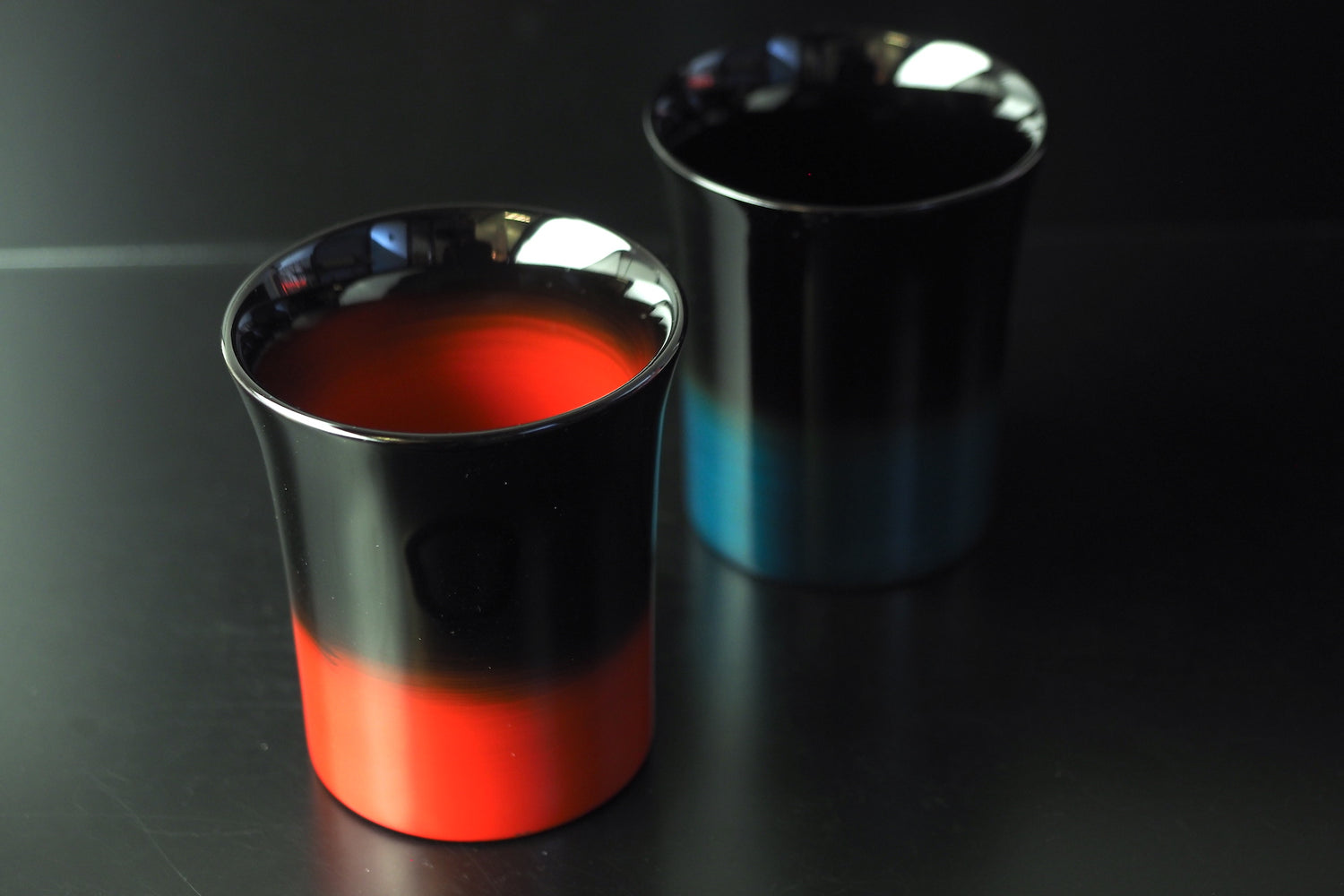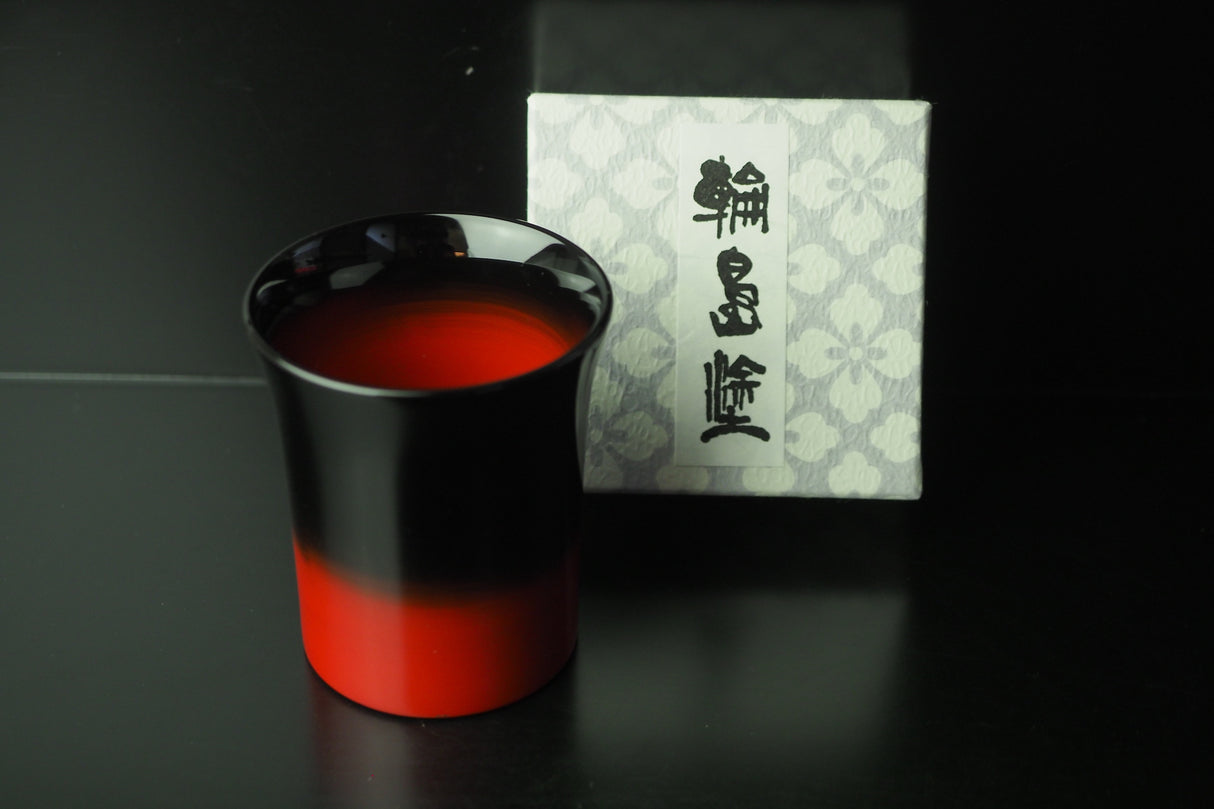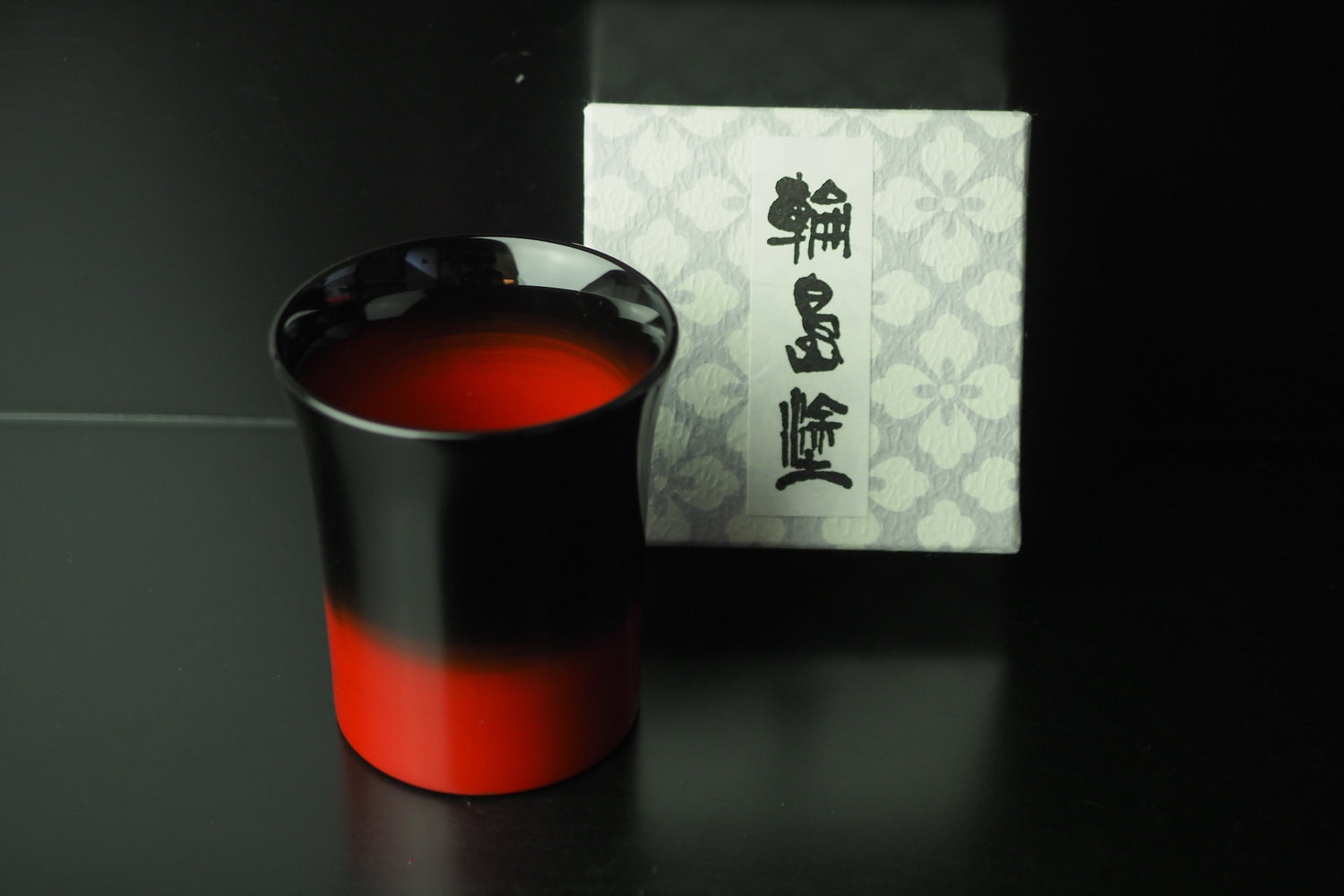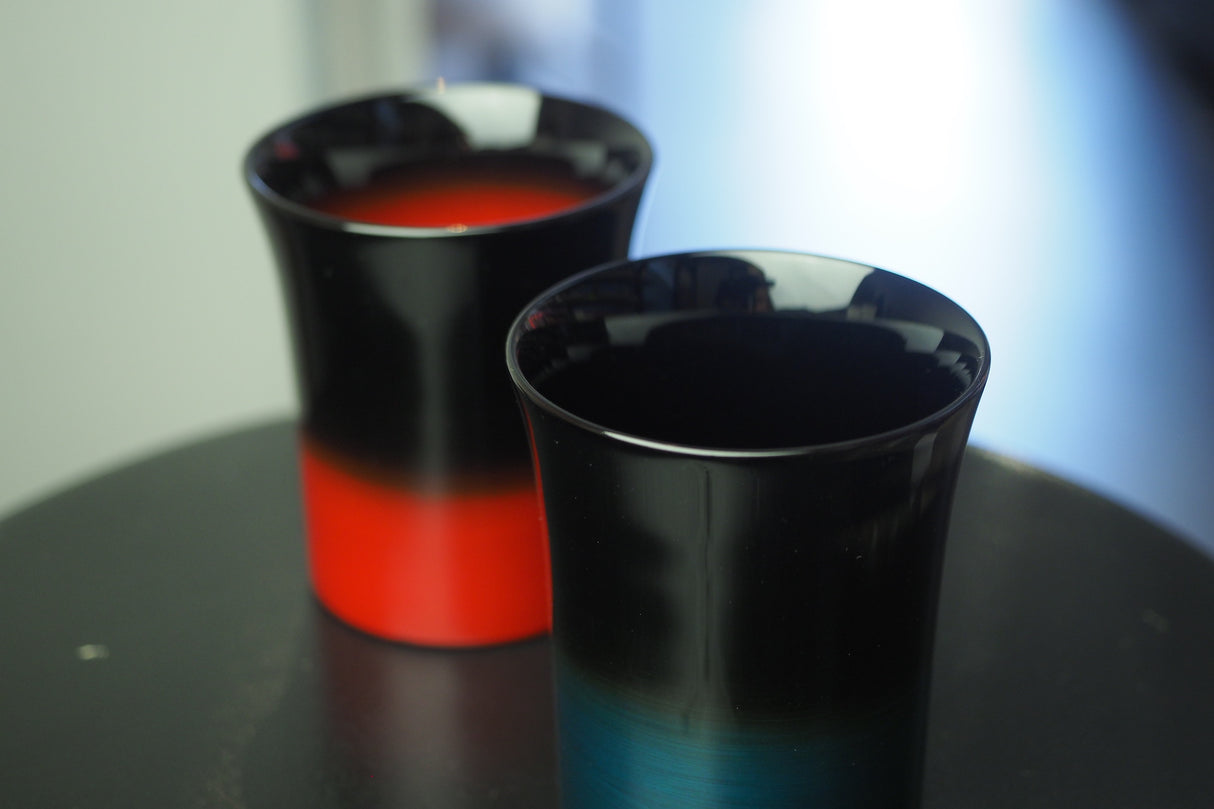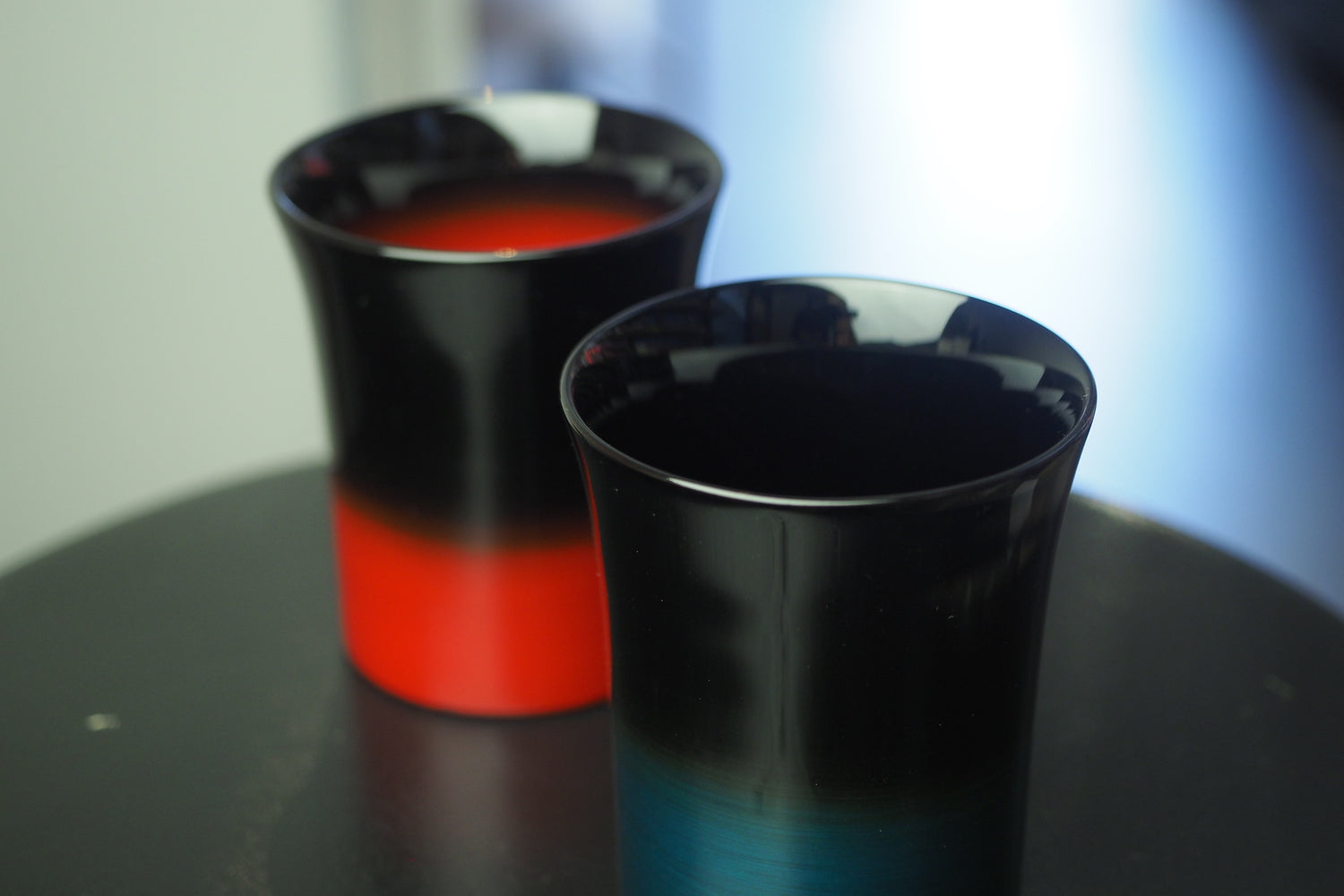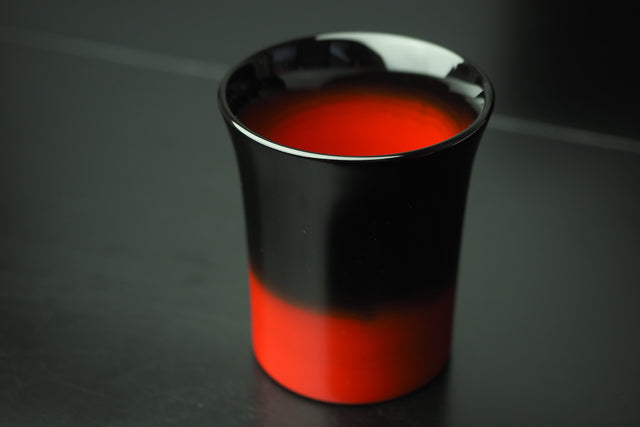Wajima-Nuri Japan Lacquerware Cup with Red Gradation - Large
Couldn't load pickup availability
About Wajima-Nuri (from Wajima-City, Ishikawa)
Among the many lacquerware-producing regions, Wajima stands out for its particularly meticulous crafting process. Nowadays, few areas utilize natural lacquer from base to finish. Additionally, Wajima incorporates diatomaceous earth for the base and a step of pasting cloth to achieve a robust yet elegant final product.
Some facts about natural lacquer
Lacquer itself continues getting harder by contact with moisture in the air. Even after it is finished as a product, it slowly continues to harden and become stronger through this natural process.
This is why the sensation when putting your lips on a lacquered cup is very smooth, as the moisture from your lips is absorbed into the lacquer. It has the same sensation when touching lacquer with your hands as well.
Lacquer also possesses antibacterial properties, making it an attractive natural paint. Lacquer, which has been used as a paint since ancient times, has great potential as a paint.
About Taya Shikki
The Taya Shikki has been manufacturing and selling Wajima lacquerware for over 200 years. Wajima lacquer ware with a modern finish. It looks light like glass, but when you hold it, you can feel the warmth and gentleness that is unique to lacquerware.
Gradation of red and black (from the craft maker)
The traditional colors of lacquerware have always been red and black. We thought that the traditional color could be expressed in a modern style and attempted through the use of gradation color.
We have imbued our lacquerware with a transparent quality, evocative of lightweight and elegant glassware rather than sticking to the traditional red and black colors.
Creating a gradation requires a considerable level of skill and expertise, and our craftsmen initially struggled to produce them. However, we have finally reached a point where we can supply them reliably and consistently.
-
my_fields.specification-
Payment & Security
Payment methods
Your payment information is processed securely. We do not store credit card details nor have access to your credit card information.
Frequently Asked Questions
Shipping
What countries do you ship to?
What countries do you ship to?
We ship orders from Melbourne. As well as everywhere within Australia, we ship to United States, Canada, New Zealand and some European countries. If your area is not listed in the checkout, please let us know.
How long will it take to receive my order?
How long will it take to receive my order?
Shipping timeframe depends on Australia Post. Parcel post shipping normally takes 1-4 days while express post shipping ensures more prompt delivery. International shipping times depend on the destination (estimated at checkout).
Do you bear import tariffs?
Do you bear import tariffs?
No, import tariff and any fees accompanying have to be paid by customers.
Returns and Refunds
How do I return a product?
How do I return a product?
First if all, please contact us by email: info@kazsknifeonline.com.au.
Items must be returned within 30 days after receiving your order. Items must be returned in the same condition in which they were received, be unused, including all the original packaging.
Upon items returned and confirmed to be resalable, we will process a refund for the item.
How long will it take to receive my refund?
How long will it take to receive my refund?
It usually takes 3-5 business days from the time we process the refund until you receive the money.

